MercoPress. South Atlantic News Agency
Tag: trade restrictions
-
Friday, May 25th 2012 - 01:21 UTC
Argentina attacks WTO and US on trade issues at OECD ministerial round
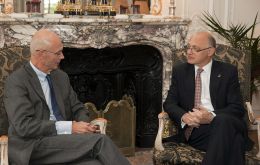
In an offensive to counter recent attacks on Argentina’s restrictive trade policies, Foreign Minister Hector Timerman expressed at the World Trade Organization, WTO, his government’s concern with the current course of global negotiations which face the serious risk of abandoning the development goals agreed when the launching of the current Doha Round of negotiations back in 2001.
-
Sunday, May 13th 2012 - 09:10 UTC
Argentina doesn’t want to start a trade war
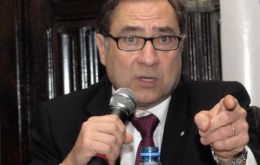
By Jorge Argüello (*) - What defines a protectionist country nowadays? Is it when a developing country takes precautions against a flood of products with plummeting prices due to an international crisis? Or, is it when an export powerhouse delivers large subsidies exclusively for domestic production? In a world economy like today’s can protectionism be measured solely by Customs measures or those targeting imports?
-
Saturday, March 24th 2012 - 02:31 UTC
US relation with Argentina souring: Congress to cut special trade benefits

The US administration of President Barack Obama is loosing its patience with Argentina and in coming days is expected to finalize special tariff benefits for certain Argentine exports.
-
Thursday, February 9th 2012 - 07:42 UTC
Argentine importers warn about ‘complications’ with new imports scheme

The head of the Importers Chamber of Argentina, Diego Pérez Santisteban, warned that the new imports controls applied by the government “is complicated,” and affects the bigger companies more than the small and medium ones of the sector.
-
Thursday, February 2nd 2012 - 05:47 UTC
Brazil will evaluate the impact and legality of Argentina’s latest trade barriers
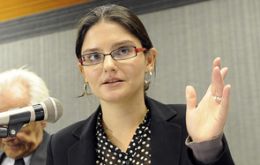
The Brazilian government expressed concerns over the new Argentine trade barriers going in effect on Wednesday and informed that it would “evaluate its impact and legality” before making any decisions, Foreign Trade secretary Tatiana Prazeres announced.
-
Thursday, October 20th 2011 - 21:41 UTC
Argentina/Brazil clash over restrictions to footwear imports
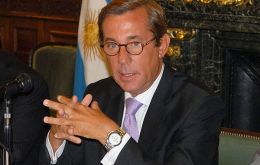
Argentine and Brazilian footwear manufacturers clashed this week over restrictions to trade, mainly through the delay in approving import licences but agreed to keep talking next month in Rio do Janeiro.
-
Monday, September 26th 2011 - 06:27 UTC
The Economist analyzes trade restrictions (protectionism) in Argentina and Brazil

The Economist in its latest edition has a two-chapter piece on trade restrictions imposed by South America’s two biggest economies. The first (“Keep Out”) refers to Argentina and the second (“A self made siege’) to Brazil.
-
Friday, May 27th 2011 - 22:42 UTC
Brazil/Argentina relations not contaminated by trade spat, in spite of industry worries
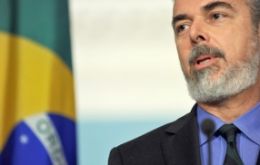
Robert da Fonseca, director of the Sao Paolo Industry Federation, FIESP admitted on Friday that Brazilian businessmen are “worried” with the commercial conflict that Argentina and Brazil face.
-
Sunday, May 22nd 2011 - 12:40 UTC
Rousseff’s main advisor describes Brazil/Argentina relations as “fine”
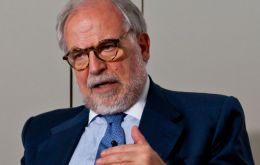
Brazilian president Dilma Rousseff's international affairs advisor Marco Aurélio García lowered the tone of the trade conflict with Argentina and said that the relationship between both countries “is fine” despite the trade barriers that Brazil imposed on the import of Argentine cars.
-
Saturday, May 21st 2011 - 09:34 UTC
Brazil/Argentine dispute abating as trade begins to normalize
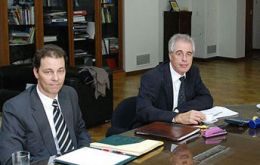
The trade dispute among Mercosur main partners seems to be abating from the moment Brazil authorized on Friday the introduction of 1.000 cars manufactured in Argentina that had been retained in Customs since the implementation of non automatic import licences.
